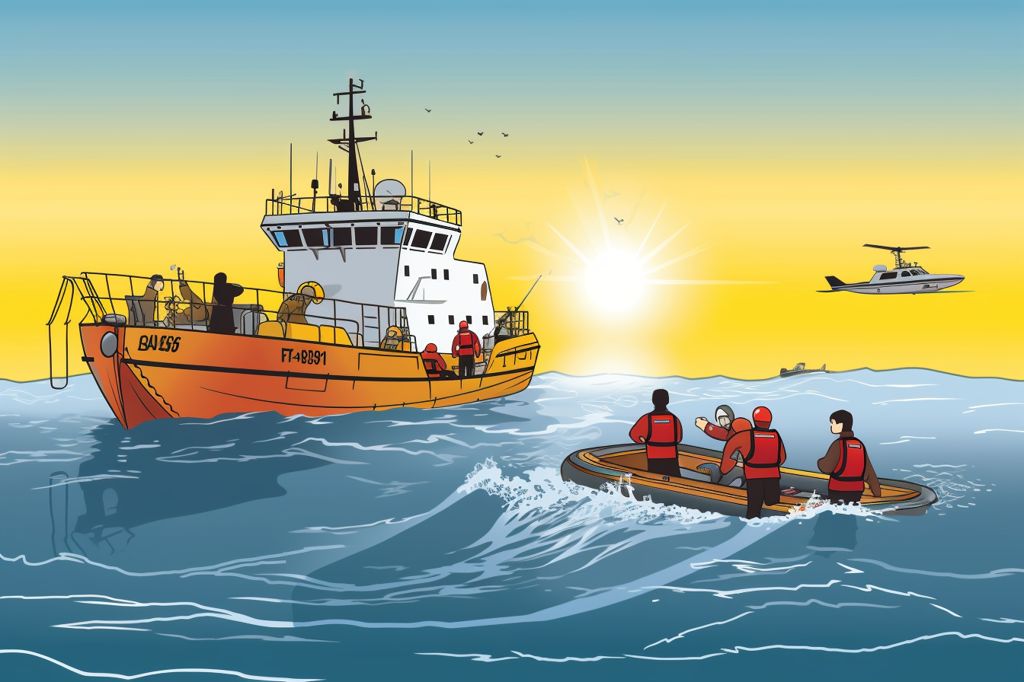The National Sea Rescue Institute (NSRI) had a busy long weekend attending to various incidents. One of these incidents was the rescue of two young boys at Clifton Beach. This article will detail the events that led to the boys needing rescue and the actions the NSRI and other responders took.
The Incident
On the weekend at Clifton Beach, two young boys, aged 8 and 10, were swept out to sea by rip currents while swimming. Concerned witnesses called the NSRI Emergency Operations Centre (EOC). Alex Elcock, a resident of Clifton 1st Beach, stayed on the line with NSRI EOC controllers, providing critical information and responding to emergency resources throughout the incident. Alex’s husband, Andrew Elcock, had jumped into the water to help.
Response
The NSRI Bakoven and NSRI Table Bay Rescue Swimmers, CoCT Law Enforcement officers, and off-duty Clifton lifeguards responded immediately. WC Government Health EMS Metro Control also dispatched Generic Paramedics ambulance services. In addition, the NSRI rescue craft Gemini Legend was launched, and two NSRI rescue swimmers entered the water.
Rescue
The 10-year-old boy was being helped out of the water by two unidentified bystanders when the NSRI rescue swimmers arrived. On the other hand, Andrew Elcock had found the 8-year-old boy in severe distress, about 20 meters offshore, caught in a strong rip current, and being dunked under the incoming waves. Caught in a strong rip current, Andrew kept the child afloat, knowing that NSRI was on the way. Andrew rode the rip current to sea, holding on to the child and coaching him to tread water to stay afloat.
As each wave approached, Andrew instructed the child to dunk under the lock, stay under until the tailing wash dissipated before resurfacing, then stay afloat, treading water at the mercy of the outgoing rip current to face the next incoming wave. About 200 meters offshore, NSRI rescue swimmers located Andrew and the 8-year-old. A rescue buoy was passed to the child to hold onto for floatation in the care of the NSRI rescue swimmer.
Medical Treatment
The NSRI rescue craft arrived on the scene and took everyone aboard, where the child and Andrew were treated for hypothermia. They were transported aboard the rescue craft to the NSRI Bakoven rescue station, where medical treatment for severe hypothermia was continued for the child. When the 8-year-old child arrived at the NSRI Bakoven rescue station, generic paramedics assisted our NSRI medics in continuing medical treatment for non-fatal drowning symptoms and severe hypothermia.
Appreciation
The NSRI applauded Alex and her husband, Andrew Elcock, and the unidentified good samaritans for going above and beyond the call of duty to save the lives of the two children. The Cameroon family, who live in Bryanston, Johannesburg, has expressed their heartfelt appreciation for everyone’s efforts and said that the two children are in good health and spirits.
Lessons Learned
This incident highlights the importance of being aware of one’s surroundings when swimming in the ocean and not underestimating the power of rip currents. It is essential to know how to swim out of them or, like Andrew did, how to float and wait for help. It is also necessary to have proper safety equipment nearby, such as a rescue buoy, and to continuously swim at beaches with lifeguards on duty. With reasonable precautions and knowledge, everyone can enjoy the ocean safely.












